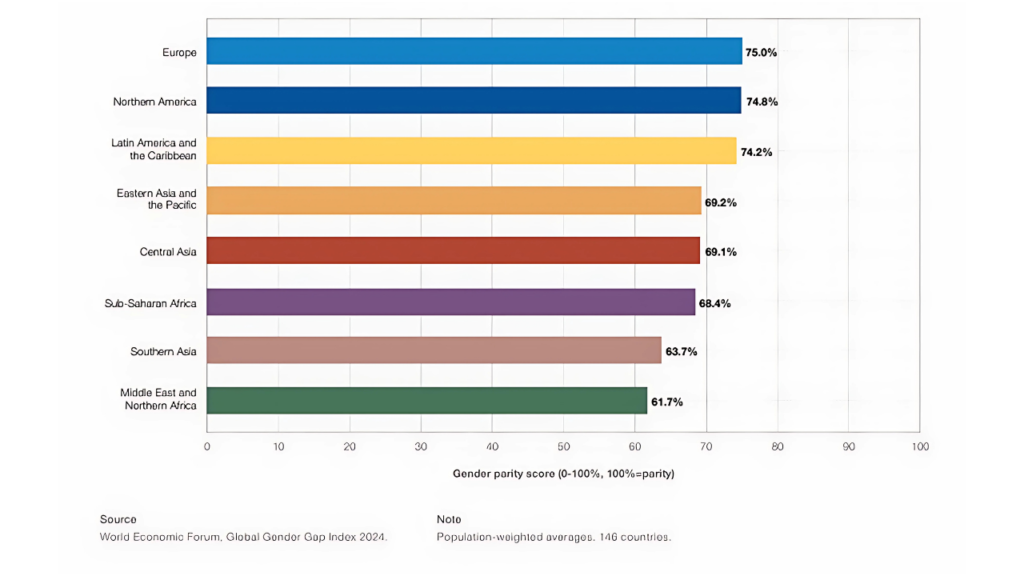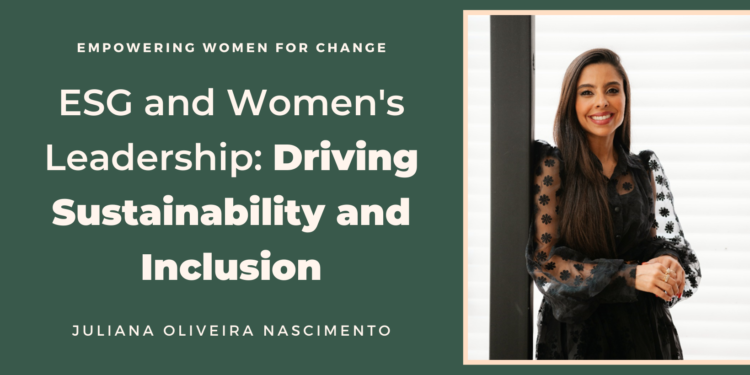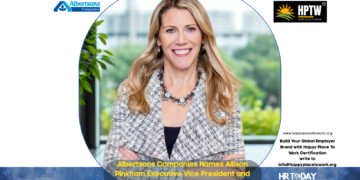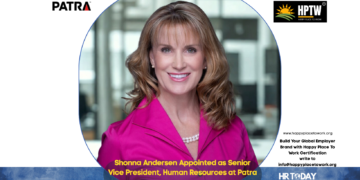Women still have an important path to chart when it comes to gender equality. In this context, it is noteworthy that, according to research from the World Economic Forum’s Global Gender Gap Report 2022, gender inequalities in the workforce are pointed out as an emerging crisis. Thus, the results of the 2022 index denote stagnation in gender parity issues, along with the ongoing indirect effects of the pandemic and broader disruptions in the market.
It is also noted that, according to research by Mckinsey & Co, making progress on gender equality can be very lucrative, as it can add $12 trillion to global growth. Therefore, this agenda becomes fundamental in organizations.
Gender disparities in the workforce are driven and affected by several points, so a paradigm shift is necessary. According to research, it was observed that the year 2022 was characterized by stagnation in situations of gender parity, which was presented together with the effects of the covid-19 pandemic, consequently, the interruptions in the labor market, as a result of the disease and the economic impacts that it reflected on the whole world.
Although there are several challenges, it has been noticed that more and more women are in migration in important work positions, especially in leadership positions. However, there is still an important way to go to find effective gender equality. In view of this, measures must be adopted in organizations, such as organizational policies, training and inclusion programs to consolidate this relevant agenda with the purpose of achieving these advances.
According to the World Economic Forum’s research, there is a lot to be accomplished when it comes to gender advancements. It should be noted that we have more than 190 years to close the gap in gender disparity, as shown in the data below from the 2023 survey:

In the 2024 Gender Gap report, it can be observed by region:

The Gap is still very relevant and more forceful action is needed from organizations in this regard.
In this line, the discussion of the role of women in leadership positions stands out, which has grown every day in the corporate environment. The data already show the presence of women in the leadership of organizations as positive. But several changes still need to occur. As pointed out by Collen Ammerman and Boris Groysberg in an article in the Harvard Business Review, even though women already occupy half of the workers with a university degree, being present in more than 300 occupations still, it is emphasized that they remain “underrepresented” in organizations, corresponding to only 8% (eight percent) of the leaders of companies that are listed in the Fortune 500, and this number is reduced even more when it comes to black women, which reaches 1% (one percent).
Along these lines, a survey conducted by Mercer, which included more than 1000 companies in 54 countries, pointed out that 81% (eighty-one percent) claimed that it was important to promote gender equality in organizations, however, only 42% (forty-two percent) actually did so.
Thinking and culture still need to be transformed, as it is known that leadership characteristics such as “authority, determination, and openness” are pointed out as typically masculine, and that women are observed as “difficult to work with or temperamental,” Ammerman and Groysberg point out.
The authors point out that “For too long, companies have relied on women to break through the glass ceiling one by one, leaving leadership ranks still distorted by gender.
In view of this, investors have been observing the positioning of organizations. It should be noted that several organizations are changing their view on the subject, so the change becomes a market premise.
As Angela Donnagio and Alexandre Di Micelli point out, investors note that the role of women in leadership presents a considerable increase in the performance of environmental, social and governance aspects of organizations. In addition, there is also value creation, in addition to the fact that the absence of gender issues increases reputational risk in the market.
Along these lines, a study by S&P Global Market Intelligence, When Women Lead, Firms Win indicated that companies that have Chief Financial Officers are more profitable and have produced a higher performance in the share price compared to the market average. In the same survey, S&P Global found that women are presented as the most underutilized source of growth, and that they can drive up global market valuations.
In view of the above, there is a need for a paradigm shift in society so that the gender equality agenda is achieved. ESG comes in this way to contribute to this agenda in a forceful way. However, this must be done effectively, through the implementation of a Living ESG
Therefore, the market has already positioned itself in a forceful way, the challenge of gender equality in the West is smaller, but in other regions there are gaps that reach 190 years.
Change has arrived and soon everyone wants to reach a point where, as Sheryl Sanberg, Chief Operation Officer at Meta, mentions “in the future, there will be no more female leaders. There will only be leaders.”
References
- WORLD ECONOMIC FORUM. Global Gender Gap Report 2022. Geneva: World Economic Forum, 2022. Available at: https://www3.weforum.org/docs/WEF_GGGR_2022.pdf. Accessed on: 31 Aug. 2023. p. 32.
- WOETZEL, Jonathan et al. The power of parity: How advancing women’s equality can add US$ 12 trillion to global growth. [S.l.]: McKinsey Global Institute, 2015. Available at: https://www.mckinsey.com/~/media/mckinsey/industries/public%20and%20social%20sector/our%20insights/how%20advancing%20womens%20equality%20can%20add%2012%20trillion%20to%20global%20growth/mgi%20power%20of%20parity_full%20report_september%202015.pdf. Accessed on: 31 Aug. 2023.
- WORLD ECONOMIC FORUM. Global Gender Gap Report 2023. https://www.weforum.org/agenda/2023/06/global-gender-gap-report-in-numbers/. Accessed on 26.Sep.2023.
- AMMERMAN, Collen; GROYSBERG, Boris. How to close gender gap. Harvard Business Review, May/June 2021. Available at: https://hbr.org/2021/05/how-to-close-the-gender-gap. Accessed on: 08 ago. 2022.
- DONNAGIO, Angela; DI MICELI, Alexandre. Women in business leadership boost ESG performance: existing body of evidence makes compelling case. Washington: International Finance Corporation, 2018. Available at: https://www.ifc.org/wps/wcm/connect/topics_ext_content/ifc_external_corporate_site/ifc+cg/resources/private+sector+opinion/women+in+business+leadership+boost+esg+performance. Accessed on: 08 ago.
- HOW gender fits into ESG? S&P Global, Feb 24 2020. Available at: https://www.spglobal.com/en/research-insights/articles/how-gender-fits-into-esg. Accessed on: 18 jul. 2022.
- The term ESG Vivo was coined by the author in the publication of her article NASCIMENTO, Juliana Oliveira. “ESG Vivo: the new journey of globalization through the transformation of regenerative and stakeholder capitalism in the business world” which can be found in the book ESG: Green Swan and Stakeholder Capitalism: The Regenerative Triad of the Global Future published by Thomson Reuters.
Click Here to Join HR TODAY WhatsApp Channel
Read Also : People Analytics Teams Still Struggle to Deliver Business Impact, Warns The Josh Bersin Company















Comments 19